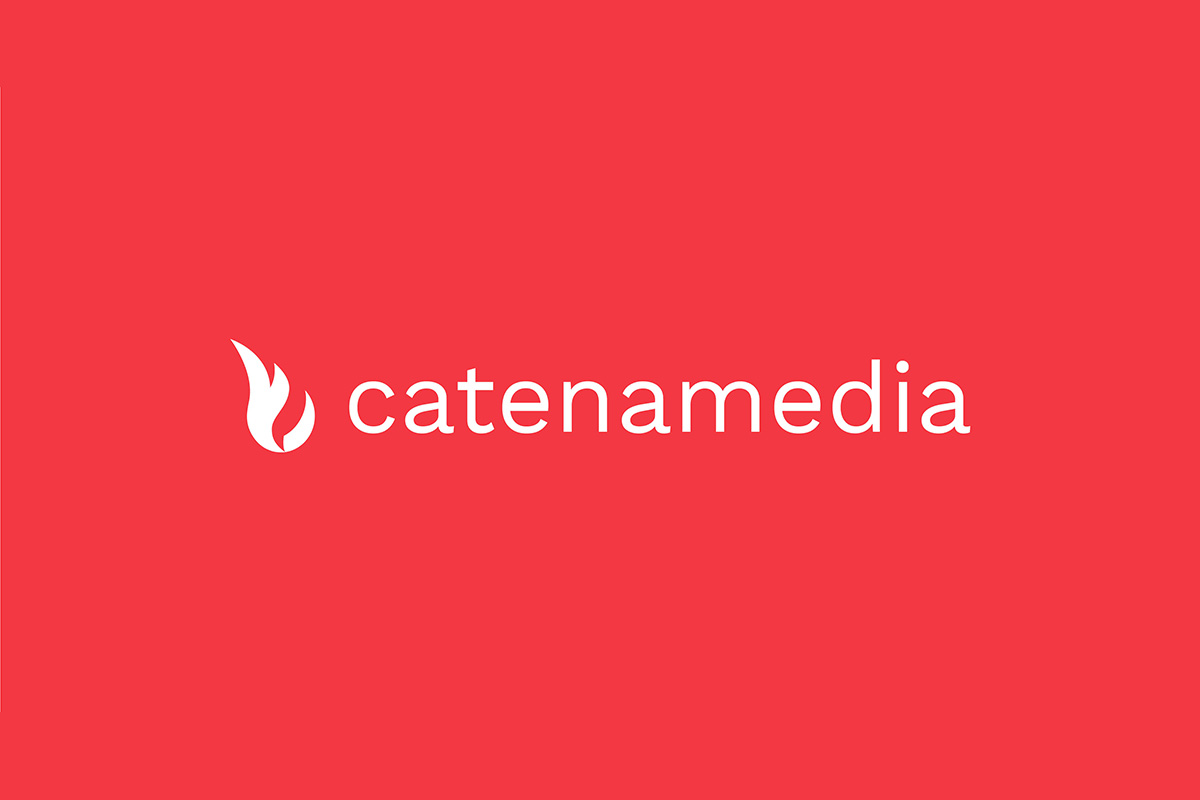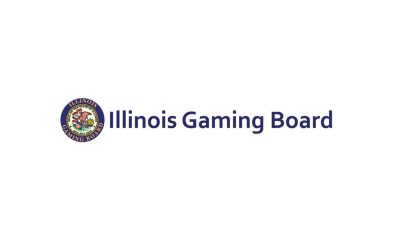Latest News
Catena Media ’s Year-end report 2020

Strong start in January 2021 with year-on-year revenue growth of 58 percent and like-for-like organic revenue growth of 61 percent.
October – December 2020 (compared with October – December 2019)
Operating revenue amounted to EUR 26.6m (26.6) resulting in an increase of 0.3 percent.
Organic search revenue amounted to EUR 23.7m (23.3) resulting in an increase of 2 percent.
New Depositing Customers (NDCs) totalled 124,959 (113,283), an increase of 10 percent.
Adjusted EBITDA increased by 9 percent and totalled EUR 12.3m (11.3), corresponding to an adjusted EBITDA margin of 46 percent (42).
EBITDA, including items affecting comparability of EUR 0.1m (-2.8), increased by 46 percent and totalled EUR 12.4m (8.5), corresponding to an EBITDA margin of 47 percent (32).
Net cash generated from operating activities increased by 32 percent and amounted to EUR 11.9m (9.0).
Earnings per share amounted to EUR 0.11 (-0.53) before
dilution and EUR 0.07 (-0.50) after dilution.
Cash and cash equivalents amounted to EUR 29.9m (12.3) on 31 December.
Net interest-bearing liabilities (NIBL) amounted to EUR 57.0m (150.2) on 31 December, resulting in a leverage ratio (NIBL/Adjusted EBITDA) of 1.09 (3.46).
January – December 2020 (compared with January – December 2019)
Operating revenue amounted to EUR 106.0m (102.8) resulting in an increase of 3 percent.
Organic search revenue amounted to EUR 95.9m (88.3) resulting in an increase of 9 percent.
New Depositing Customers (NDCs) totalled 443,524 (436,706), an increase of 2 percent.
Adjusted EBITDA increased by 20 percent and totalled EUR 52.0m (43.5), corresponding to an adjusted EBITDA margin of 49 percent (42).
EBITDA, including items affecting comparability of EUR -1.9m (-3.0), increased by 24 percent and totalled EUR 50.1m (40.5), corresponding to an EBITDA margin of 47 percent (39).
Net cash generated from operating activities increased by 29 percent and amounted to EUR 49.0m (38.0).
Earnings per share amounted to EUR 0.20 (-0.18) before dilution and EUR 0.12 (-0.17) after dilution.
Cash and cash equivalents amounted to EUR 29.9m (12.3) on 31 December.
Net interest-bearing liabilities (NIBL) amounted to EUR 57.0m (150.2) on 31 December, resulting in a leverage ratio (NIBL/Adjusted EBITDA) of 1.09 (3.46).
“Catena Media had an exceptional ending to a strong quarter, breaking an all-time high in USD revenues in December, thanks to our ability to take and maintain dominant positions in both sports and casino across numerous states during the busiest sports season in the US.”
Michael Daly, CEO of Catena Media as of 1 March 2021
Year-end Key 2020 Takeaways
Increased Q4 Adj. EBITDA by 9 percent to EUR 12.3m.
Net debt (NIBL) down to EUR 57.0m (150.2) by year-end.
Soft start in the fourth quarter and strong ending in December 2020.
Sports segment back to normal pre-COVID-19 levels by year-end.
Headwinds in Germany for both Sports and Casino due
to the tolerance period for new regulations.
Trending to well above double-digit growth in 2021.
Our US iGaming Business developed well, with a share of 31 percent of total revenues in Q4 (43 percent growth) and 30 percent of total annual revenues (72 percent growth).
In December 2020 divested all shares in Catena Media Financials US Inc. (formerly Hammerstone Inc.).
Continued high investment in the US market to maintain our no. 1 position.
Strong start in January 2021 with year-on-year revenue growth of 58 percent.
Powered by WPeMatico
Brazil
RubyPlay expands Brazilian presence through partnership with Esportes da Sorte

RubyPlay goes live with Esportes da Sorte, the flagship Esportes Gaming Brasil Group brand, to elevate player engagement across Brazil’s regulated market
RubyPlay, a studio-based content ecosystem, has strengthened its position in Brazil after partnering with leading online casino operator, Esportes da Sorte.
The launch features a selection of RubyPlay’s most popular titles, including Mad Hit® Diamonds and Mad Hit® Mr Coin. Content from Koala Games, RubyPlay’s market-focused studio with a strong focus on the Brazilian market, has also gone live with Esportes da Sorte, including Voltage Blitz® Rapid, 3 Big Barrels® Buffalo, and Voltage Blitz® Vortex.
The launch with the tier 1 operator forms part of RubyPlay’s wider expansion strategy in Brazil’s regulated market and is part of a broader go-live across the Esportes Gaming Brasil group, which includes additional launches with group brands LOTTU and OnaBet.
RubyPlay has established a strong track record of delivering high-performing, localised content tailored to Brazilian player preferences, driving engagement and delivering value for its partners.
By combining RubyPlay’s distinctive Latin American game design expertise with Esportes da Sorte’s strong market presence, the partnership is set to deliver a compelling entertainment experience to a broad audience of online players across Brazil’s rapidly growing market.
Dima Reiderman, CCO at RubyPlay, said: Brazil is a central part of our growth strategy, and working alongside an influential operator like Esportes da Sorte marks an important milestone in our growth strategy.
“Their firm regional presence, paired with our localised, high-performing content, creates a powerful proposition that we believe will resonate strongly with players.”
Hugo Baungartner, CBO at Esportes da Sorte, added: “We are committed to offering our players engaging, high-quality gaming experiences, and partnering with RubyPlay represents an important step forward in that journey.
RubyPlay’s strong focus on Brazil and its investment in truly localised content make them a highly valuable partner, giving us confidence in the long-term success of this collaboration and in our continued growth within the regulated market.”
The post RubyPlay expands Brazilian presence through partnership with Esportes da Sorte appeared first on Americas iGaming & Sports Betting News.
Bet Rite
Spintec Expands into Canada with Bet Rite

Spintec is expanding its footprint in North America by partnering with Bet Rite in the Canadian gambling sector. As a prominent developer of electronic table games, Spintec invested significant effort into locating a partner who comprehends the distinctiveness of the Canadian casino industry. Bet Rite is taking on the position of Spintec’s distributor in Canada, leveraging its established reputation and substantial industry knowledge. This collaboration combines global innovation with local expertise in a partnership that is helping Spintec advance its expansion objectives in North America.
Bet Rite’s establishment is rooted in years of industry expertise. The firm focuses on providing top-notch gaming solutions designed specifically for Canadian operators. They aim to provide a sole vendor connection that grants access to numerous top-tier product lines, establishing them as a reliable partner nationwide.
For Spintec, collaborating with a company that prioritizes service, product excellence, and enduring relationships is vital, and Bet Rite is dedicated to prioritizing customer needs. With a solid sales network and a reputation for dependability, their market stance is highly strong.
Through this collaboration, Spintec is guaranteeing that their creative products receive backing from an attentive, community-focused service. The initial product line to be launched in the Canadian market will be Spintec’s premier Charisma line. Charisma’s design, flexibility, innovation, and wide range of product customizations will undoubtedly make it a top seller in Canada as well.
Billy Maclellan, Bet Rite President, says: “Our company has grown by offering best-in-class suppliers the local support that they need. Spintec fits the mold perfectly and together we are well placed to make this partnership a glowing success”
Goran Sovilj, Spintec’s Chief Commercial Officer, agrees: “Bet Rite’s deep understanding of the Canadian market makes this alliance very promising. We are always excited to introduce innovative and exciting products to new markets, especially when our distributors are as experienced and knowledgeable as Bet Rite.”
The post Spintec Expands into Canada with Bet Rite appeared first on Eastern European Gaming | Global iGaming & Tech Intelligence Hub.
Industry News
Ex-Paysafe VP Justin Fraser takes chief revenue officer role at Yaspa to drive global growth

Yaspa, the renowned fintech focusing on instant payments and identity solutions, today reveals the appointment of Justin Fraser as its Chief Revenue Officer.
Fraser becomes part of Yaspa’s executive team during a crucial period of global growth. He has more than 20 years of commercial leadership experience in the payments ecosystem, having occupied senior leadership positions at notable industry companies like Cybersource, Visa, and Paysafe.
Having a career centered on maneuvering through intricate payment environments, he offers knowledge in rapidly expanding, regulated sectors such as iGaming, cryptocurrency, and financial technology.
As the new CRO, Fraser will manage Yaspa’s worldwide commercial strategy, concentrating on expanding the company’s Intelligent Payment platform, which integrates open banking with AI-powered customer insights, throughout the UK, Europe, and North America.
Yaspa CEO James Neville said: “We are thrilled to welcome Justin to the team during this period of rapid acceleration. His deep expertise in navigating complex regulatory environments and his proven track record in scaling payment solutions are invaluable assets as we expand our footprint in the US and beyond. Justin’s appointment further strengthens our leadership as we continue to help businesses lower costs, grow revenues, and enhance financial compliance through open banking.”
Justin Fraser said: “Yaspa is at the forefront of the shift toward real-time payments. The company’s unique blend of open banking and AI-verified insights solves genuine friction for merchants, particularly in industries like iGaming. I am excited to join such an innovative team and look forward to driving the next phase of our commercial growth globally.”
Fraser will collaborate closely with the recently strengthened US team, which includes the newly appointed US Sales Lead, Peter Kula, and US Senior Solutions Manager, Jackson Esoda.
This statement comes after a year of significant growth for Yaspa, highlighted by increasing its workforce from 15 to 75 employees and successfully securing a $12 million investment round spearheaded by Discerning Capital. In this timeframe, the firm broadened its international presence with new ventures in Atlanta and Leeds, while winning esteemed honors such as the 2025 Payments Award for Real-Time Payments Innovation and a spot on the CB Insights Top 100 Fintech list.
The post Ex-Paysafe VP Justin Fraser takes chief revenue officer role at Yaspa to drive global growth appeared first on Eastern European Gaming | Global iGaming & Tech Intelligence Hub.
-

 Brasil on Track7 days ago
Brasil on Track7 days agoODDSGATE LAUNCHES “BRASIL ON TRACK”, A STRATEGIC PLATFORM FOR NAVIGATING BRAZIL’S REGULATED IGAMING MARKET
-

 Amusnet6 days ago
Amusnet6 days agoWeek 6/2026 slot games releases
-

 Arshak Muradyan6 days ago
Arshak Muradyan6 days agoDigitain Secures UKGC Certification for Sportsbook and Platform
-

 Latest News6 days ago
Latest News6 days agoHyper Gems — A New Cosmic Adrenaline Release from Dream Play
-

 Latest News3 days ago
Latest News3 days agoLaunch Of A Fresh Online Casino Guide 2026
-

 Compliance Updates3 days ago
Compliance Updates3 days agoIllinois Gaming Board and Attorney General’s Office Issue more than 60 Cease-and-Desist Letters to Illegal Online Casino and Sweepstakes Operators
-

 Dream Play6 days ago
Dream Play6 days agoHyper Gems — A New Cosmic Adrenaline Release from Dream Play
-

 HIPTHER6 days ago
HIPTHER6 days agoHIPTHER Announces Media Partnership with Nightrush Ahead of Prague Summit 2026



















